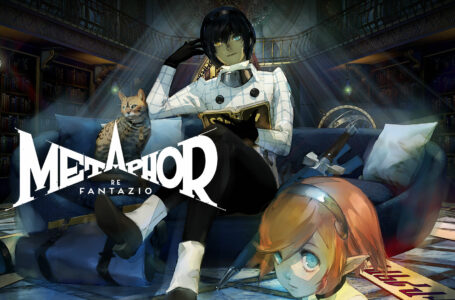Do we need another Danganronpa after V3: Killing Harmony?
Do I want another Danganronpa game? Yes. Would I play another Danganronpa game? Absolutely. But will another franchise entry really fill the Ultimate Detective-shaped hole inside me (phrasing)? I’m just not sure.
This article contains major spoilers for the Danganronpa franchise, particularly Danganronpa V3: Killing Harmony.
The Danganronpa games have, for the most part, left me in awe. From the striking(ly violent) animated illustrations to the painstakingly detailed murder-mysteries, all tied together with irreverent humour genuinely hopeful morals, it’s a franchise I would recommend to just about anyone. However, I recall feeling slightly crestfallen upon finishing Killing Harmony for a variety of reasons.

Did Danganronpa V3: Killing Harmony disappoint?
It’s not a bad game by any means – but yes, it did disappoint me a bit. Danganronpa 2: Goodbye Despair did such a great job at expanding upon the first game with new mechanics like the Rebuttal Showdown and the virtual pets. It also managed to one-up the reveal from the first game with the end-game revelation that Hajime and his classmates had been trapped inside a virtual reality program the entire damn time. Also, Komaeda was there, so that alone made the game a ten outta ten.
At first glance, V3 does a decent job at building upon Goodbye Despair, firstly by doing two things I had always wondered about – making a female player the protagonist, and having the protagonist actually murder someone.

Poor Kaede. I was so jazzed to play a Danganronpa game from the perspective of a woman, and to move away from the endearing yet kinda boring “protagonist is just a normal average guy – unless?” angle. I appreciate the risk that the game took with this opening gambit – I remember the shock and scandal I felt at having to select “myself” as the murderer – but I sorely missed playing as our rabble-rousing master pianist moving forward.
I don’t mind Shuichi, but he’s also my least favourite protagonist; having him be another Ultimate Detective is not only insulting to best girl Kyoko Kirigiri, it’s nowhere near as interesting as the idea of growing an Ultimate Talent (everyone’s favourite talent, Hope) as a talentless protagonist.
Instead of getting to explore Makoto’s natural affinity for leadership, or watching Hajime overcome his past of cynicism and self-doubt to grow into an unlikely hero, we don’t get anything nearly as definitive for Shuichi.
I’ll happily admit that I really enjoyed the introduction of Perjury as a Danganronpa mechanic – the idea of lies leading to truth is a fun and ethically complex idea to play around with – as well as the idea that Shuichi hadn’t necessarily earned his Ultimate status.

I assumed the game would train Shuichi up, like Makoto and Hajime before him, to become a genuine detective with a passion for the Truth. And it certainly seemed like it was shaping up that way – until the ending.
Here comes the big reveal – we find out that none of the characters are Ultimate Students in any way – they’re fans of the Danganronpa game show (that’s right, it was all a show and none of any of the games are “real”), and have willingly received a fabricated personality and set of memories in order to compete. This ending was incredibly divisive, and I speak from personal experience because I was fuming. I felt as if my entire playthrough of V3 was a waste – all these characters that I’d gotten to know and love were, in fact, pathetic Despair-ridden reality show contestants.
It’s not all bad, though. Writing this now, I can’t help but think that overall, V3 did tell us a story about how big lies can lead to big truths, and how belief itself is a tool that can be utilised or indeed weaponised to achieve an awe-inspiring goal. It also had some interesting things to say on the ontology of mind, memories and personality, and how fiction can become “truth” if it’s desired badly enough. That’s all really good stuff – it’s just not the story that anyone wanted. V3 succeeded in one-upping Goodbye Despair’s big twist – but at the cost of permanently altering the canon of the entire franchise.

By asking its audience to reframe their experiences of previous Danganronpa media as being a fictional franchise in a world that loves killing games is meant, I think, to ask the player to think about why exactly they enjoy Danganronpa in the first place. I think it means to question why death is so often at the forefront of all kinds of entertainment, and the troubling ideologies said entertainment can create. There are some really fantastic elements here, but V3 ultimately fails to tie them all together in a satisfying way – it commits the cardinal sin of mystery fiction, which is to make its reader feel like an idiot.
Will a Danganronpa 4 fix the franchise?
I hate to say it, but probably not. If a fourth game is not going to reverse the revelations made in V3, or is not going to fashion it into a whole new direction for the franchise, then I think it would be best to leave well enough alone.
For all of its flaws, and for all the complaining I’ve just done, I don’t dislike V3. I think it hits close to home especially because it is (and presumably was expected to be) the last Danganronpa game, and it left us with the unfortunate knowledge that all the characters we had grown to adore and root for never existed in the first place.
Of course, I think that’s supposed to make us realise that they never “existed” at all – they’re already fictional, so what’s the harm if they’re double-fictional? You can still believe in them, and thereby transform the lie into a truth. I spend many of my days being emotional about fictional characters; they don’t have to be real to be loveable.

That can all be true, and I can still be mad about V3 for its mishandling of such a contentious theme, primarily because it led to such a hazy and frustrating ending. But maybe this is a sign that Danganronpa has run its course – after V3, I’m almost certain that there’s no one-upping its meta-meta conclusion without it starting to get even more wanky.
Spike Chunsoft seems to be more interesting in exploring other titles, such as the recently released Master Detective Archives: RAIN CODE, a detective game with a similar style to Danganronpa, yet with what appears to be significantly different mechanics. If you’re hankering for a bit of Investigation Time, I suggest you give it a look – or, if you’re still in the mood for death games, check out Lilia’s article on Your Turn To Die!
Join The Discussion
Rice Digital Discord
Rice Digital Twitter
Rice Digital Facebook
Or write us a letter for the Rice Digital Friday Letters Page by clicking here!
Disclosure: Some links in this article may be affiliate links, which means we may earn a small commission if you make a purchase after clicking on them. This is at no additional cost to you and helps support Rice Digital!
- Anime to look out for this October - September 29, 2023
- Netflix original anime: the good, the bad and the ugly - September 28, 2023
- Post-apocalyptic visual novel Archetype Arcadia launches on October 24th, with pre-order discount available for PlayStation and Switch - September 26, 2023






